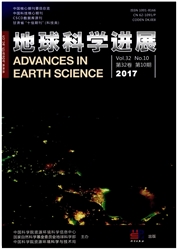

 中文摘要:
中文摘要:
甲烷氧化与氨氧化过程分别对控制温室气体甲烷和氧化亚氮方面有着特殊作用,土壤及湿地等环境中的甲烷氧化菌和氨氧化菌在生态系统碳、氮生物循环中扮演着重要的角色。论述了甲烷氧化与氨氧化过程的微生物学机制,甲烷氧化菌和氨氧化菌的群落结构变化,分析了甲烷氧化菌和氨氧化菌在碳、氮循环以及它们在控制重要温室气体排放中的环境功能,阐述了甲烷氧化菌和氨氧化菌的关联作用机制。以期深入揭示甲烷氧化菌与氨氧化菌的空间分异与耦合机制,为深入探讨这类微生物的生态机制和环境功能提供科学线索。
 英文摘要:
英文摘要:
The greenhouse effects of methane and nitrous oxide are significantly higher than carbon dioxide, respectively 23 and 296 times, respectively. Carbon dioxide, methane and nitrous oxide distribute in the atmosphere, and lead the earth' s temperature rising. The wetlands account for more than half of greenhouse gas emis- sions in the atmosphere than that from water bodies. So the wetlands significantly affect the global climate changes. Soil microorganisms play important roles in maintaining ecological functions of the wetlands. Methane-oxidizer can use methane as the sole carbon and energy, and generate the energy for growth during the oxidation of methane to same amount of carbon dioxide. Methane-oxidizer plays an important role not only in methane consuming, but also in carbon, oxygen, nitrogen cycles in the land-water environments. Methane-oxidizer is the key group for controlling the methane emission and involving in the carbon cycle, and play important roles in greenhouse gas methane emission and in the carbon cycle. Ammonia-oxidation is the key and limiting step of the nitrification which is re- sponsible for deep-sea huge library of nitrate formation. Methane- and ammonia-oxidizer have similar substrates methane and ammonia to generate energy respectively. Oxidation of methane and ammonium are two different proeesses catalyzed by completely unrelated microorganisms. Still, the two processes do have many interesting aspects in common. Aerobic methane-oxidizer involving in the process of methane oxidation is as follows: CH4-*CH3 OH-*HCHO- HCOOH-*CO2. Anaerobic oxidation of methane is a microbial process occurring mainly in anoxic marine sediments, and methane is oxidized with sulfate as the terminal electron aeeeptor. Anaerobic oxidation of methane is considered to be a very important process reducing the emission of the greenhouse gas methane from the ocean into the atmosphere. It is estimated that almost 90% of all the methane that arises from marine sediments is oxidized anaerobically by this pr
 同期刊论文项目
同期刊论文项目
 同项目期刊论文
同项目期刊论文
 Factors affecting extracellular and intracellular polysaccharide production in submerged cultivation
Factors affecting extracellular and intracellular polysaccharide production in submerged cultivation 期刊信息
期刊信息
